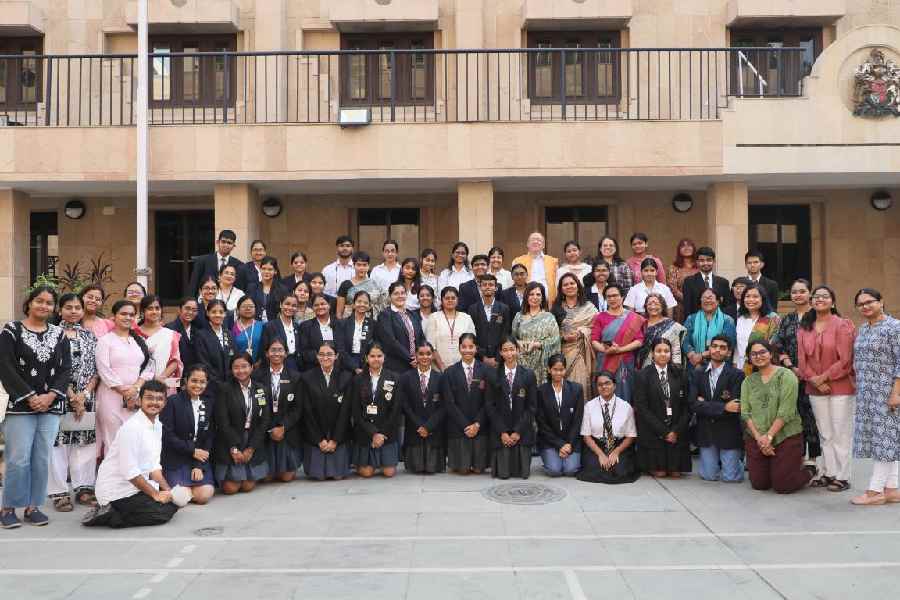Students share ideas to usher in change


Do parents contribute to gender stereotypes?
What are the challenges girls face in Taliban-ruled Afghanistan?
Does social media add to the objectification of women?
Forty-six students from various city institutions came together to discuss barriers to education, societal stereotypes and mental health at a conclave titled Beyond Boundaries: A Girl’s Journey through Stereotypes.
Organised by NGO Child Rights and You (CRY) in association with Young Metro, The Telegraph, the day-long event was held at the British Deputy High Commission on November 16.
The initiative aimed to empower the girl child through dialogues, discussions and creative expression. Students from schools such as Birla Bharati, Lakshmipat Singhania Academy, La Martiniere for Girls, Young Horizons School, I.P. Memorial School and Sushila Birla Girls’ School engaged in conversations with Andrew Fleming, British deputy high commissioner in Calcutta.
The discussions centred on critical issues such as educational barriers, the psychological impact of stereotypes and the influence of family and social media.
“From birth, girls are conditioned to believe they must be soft-spoken and submissive, while boys are taught to be strong. These mental frameworks haunt them for life,” said Sujata Roy Choudhury, consultant psychologist, during a panel discussion on gender stereotypes that opened the day.
The panel, consisting of experts from diverse fields, explored how factors such as climate change, financial independence and mental health perpetuate gender stereotypes. Swati Gautam, debater and managing trustee of NGO Pukaar, Ranjika Misra, teacher at La Martiniere for Girls, Apala Datta, principal of Birla High School, HR professional Piya Nandi and Roy Choudhury brought different perspectives to the table.
Datta narrated a poignant story from the Sunderbans: “Natural calamities displace families to unsafe slums where predators lurk. These girls are lured with false promises of jobs and are trafficked. In such cases, a girl’s education is often sacrificed over her brother’s.”
Ranjika Misra highlighted the psychological toll of societal norms on young girls, while Roy Choudhury delved into how these stereotypes are ingrained from an early age.
Students were then divided into four groups and tasked with expressing their views through creative mediums such as poetry, art, music and theatre. Within 20 minutes, they conceptualised and presented activities, including an Equality Tree, rewritten song lyrics, a skit andoriginal verses.
“It’s inspiring to hear these young voices tackling such critical issues. They represent a future that values equity and empathy,” said Fleming after the interactive session.
Riya Sarkar, a Class XII student from Birla Bharati, emphasised the need to educate adults as well.
“The primary objective of this programme was to make young minds aware that barriers to girls’ education exist even today, affecting millions across the country. We wanted to give students a platform to share their thoughts and insights on the matter,” said Trina Chakrabarti, regional director of CRY (east).
The conclave culminated with participants reflecting on their role in dismantling stereotypes and building a more equitable future.